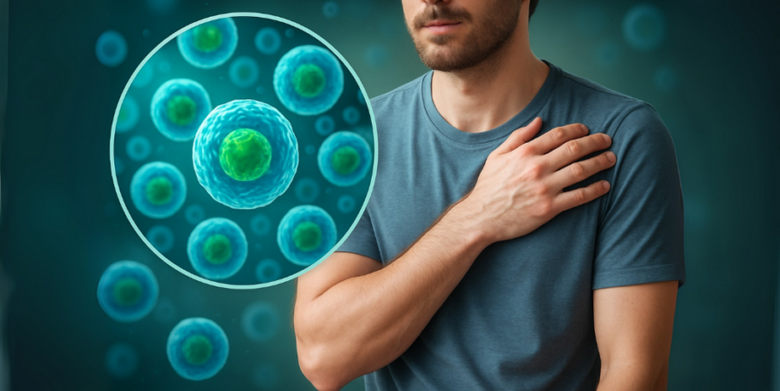Cancer is a scary word, and it touches so many lives. We all know someone who has battled it, or maybe we’ve faced it ourselves. It’s a tough reality, but it’s not always a foregone conclusion. While it might seem like everyone is getting cancer, there are things you can do to lower your risk.
In this article, Dr. Liu Jia-Yia will explore some practical steps you can take to protect your health and reduce your chances of developing cancer.
Protecting Your Body From Cancer
It’s a common thought that cancer is just something that happens as you get older, but that’s not always true. We see younger people getting cancer more often now, and it makes you wonder why. While some things are out of our control, many factors are within our power to change.
Think of it like saving for retirement: the good choices you make today can really pay off down the road. The same goes for your health. By making smart choices now, you can build up your body’s defenses and reduce your risk of cancer.
7 Key Takeaways:
- Eat your greens: Foods rich in chlorophyll can help protect your liver.
- Watch out for mold: Aflatoxins in moldy foods are serious carcinogens.
- Sun smarts: Get some sun, but avoid sunburns.
- Limit processed foods: Deli meats and processed items can contain harmful chemicals.
- Rethink alcohol: It’s a known carcinogen.
- Be careful with red meat: It has compounds that can increase cancer risk.
- Filter your water: Tap water can contain unwanted toxins.
The Power of Green Foods
One of the simplest things you can do for your health is to eat more green foods. Not green food coloring, but naturally green foods that contain chlorophyll. Chlorophyll is like a plant’s powerhouse, and when we eat it, we’re essentially borrowing some of that plant power for our own bodies. Studies have even shown that eating dark green, chlorophyll-rich foods can significantly reduce your risk of liver cancer.
Aim for about five cups of leafy greens a day. It might sound like a lot, but blending them into a smoothie is an easy way to get your daily dose. Kale, for example, is a fantastic choice because it contains compounds that can help lower your risk of breast cancer and lymphomas.
The Hidden Dangers of Mold
Mold is everywhere, and while a little bit might not hurt, certain types of mold produce dangerous toxins called aflatoxins. These toxins are potent carcinogens, especially known for causing liver cancers. You can find aflatoxins in old grains, nuts, cereals, breads, and even granola bars.
Toasting moldy food doesn’t get rid of the toxins, so it’s best to just throw it out. Also, be aware that corn and other grains fed to farm animals can have high levels of aflatoxins, which then get concentrated in the animal products we eat, especially organ meats and dairy.
The US Food and Drug Administration (FDA) does test some foods for aflatoxins, but they can’t test everything. So, it’s up to us to be careful. Always check nuts and nut butters for any signs of mold, discoloration, or shriveling, and discard them if they look suspicious. Storing grains and nuts for too long, especially in warm, humid places, can also encourage mold growth.
Sunlight: Friend or Foe?
Sunlight is important for our health because it helps our bodies make vitamin D and melatonin, two hormones that play a role in fighting cancer. Getting some early morning or late afternoon sun is a good idea.
However, there’s a fine line between healthy sun exposure and getting a sunburn. Sunburns are not good for you. They can actually suppress your immune system and increase your risk of cancer, especially melanoma.
This is particularly true for children. So, protect yourself and your kids from excessive sun exposure. While sunblock can help, it’s also important to remember that spending hours in the sun isn’t ideal unless you’re a plant!
The Problem with Processed Foods and Alcohol
Many of us grew up hearing about the dangers of smoking, and while smoking rates have gone down, cancer rates, especially in younger people, are still a concern. This makes you wonder if our food plays a role.
Processed foods, like deli meats, often contain preservatives like nitrates. These nitrates can react with proteins in your body to form nitramines, which are known to cause cancer, especially in your stomach and colon. It’s best to avoid processed meats and even processed veggie patties that contain similar compounds.
Alcohol is another big one. It’s a known carcinogen that can increase your risk of various cancers, including breast cancer, mouth cancer, stomach cancer, and liver cancer. Alcohol is essentially a waste product from fermentation, and it’s toxic to our bodies.
It can also make you deficient in important vitamins, like vitamin B1, which is vital for your metabolism and brain health. So, while it might be tempting to enjoy a drink, it’s best to avoid alcohol altogether if you’re looking to reduce your cancer risk.
Red Meat and Water Quality
Red meat, especially processed red meat, has been classified as a carcinogen by the World Health Organization. This is due to compounds like nitrates and heme iron.
While heme iron is important in our bodies, in the wrong place, it can be toxic. Countries with high red meat consumption, like South Korea, also tend to have higher rates of colon cancer. So, cutting back on red meat, especially processed versions, is a good idea.
Finally, let’s talk about water. Nitrates can also be found in our drinking water due to fertilizer runoff. This is why having a good water filter is so important.
You’d be surprised at the amount of toxins that can be in tap water. Filtering your water is a simple step you can take to reduce your exposure to these unwanted chemicals and protect your health.
By making conscious choices about what we eat, how we expose ourselves to the sun, and what we drink, we can take significant steps toward reducing our cancer risk and living healthier lives.
It’s about making small, consistent changes that add up to big benefits over time.



